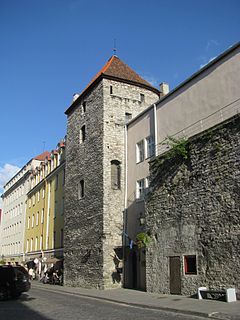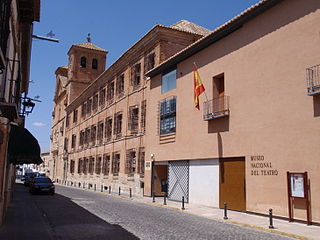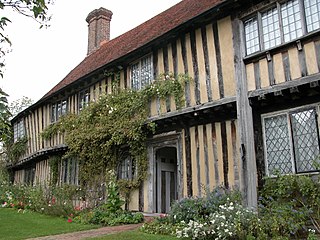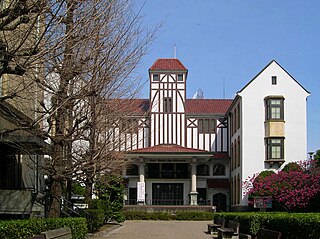 W
WThe Theatermuseum is a federal museum of national theatre history. Since 1991 it is situated in the Palais Lobkowitz in Vienna.
 W
WAzerbaijan State Theatre Museum named after Jafar Jabbarli reflects the professional theatre history of Azerbaijan. In 1934, the issue of establishing such a museum was raised at the Republican conference by theater workers. The museum was organized in the same year in the building of the Azerbaijan State Drama Theater. In fact, this exhibition was the foundation of a future museum. According to eyewitnesses, Jalil Mammadguluzadeh and Abdurrahim bey Hagverdiyev, the great writers who cut the opening ribbon of the exhibition, said: "Long live the Azerbaijani theater!"
 W
WA. A. Bakhrushin State Central Theatre Museum is a museum in Moscow dedicated to the theatre. It was founded in 1894 by the Russian merchant, and philanthropist Alexey Bakhrushin.
 W
WThe Deutsche Theatermuseum in Munich is a museum focused on history of the theater, and primarily devoted to the German-speaking theater history. It has its headquarters in the Churfürstlichen Gallerie, built in 1780/1781, and located in the Galeriestraße 4a at Hofgarten. Director of the Museum is currently the theater, art and literary scholar Claudia Blank. She is also director of the photography collection.
 W
WEstonian Theatre and Music Museum is a national museum located in the old town of Tallinn, Estonia. The museum was established in 1924.
 W
WThe Fountain House is a palace in Russia built by the Sheremetev family, named after the nearby Fontanka river. Since its erection in 1712 the building was reconstructed several times by famous architects G. Dmitryev, Savva Chevakinsky, Fyodor Argunov, and Ivan Starov. It is also known as the Sheremetev Palace.
 W
WThe Museo Teatrale alla Scala is a theatrical museum and library attached to the Teatro alla Scala in Milan, Italy. Although it has a particular focus on the history of opera and of that opera house, its scope extends to Italian theatrical history in general, and includes displays relating, for example, to the commedia dell'arte and to the famous stage actress Eleonora Duse.
 W
WCentre National du Costume de Scene (CNCS), is a French museum dedicated to stage costumes and sets.
 W
WThe National Museum of Theatre in Almagro, Spain is a museum dedicated to the promotion and preservation of Spanish theatre. It owns a large collection of scenic designs and scale models, costumes and costume designs, puppets, drawings, printmakings, paintings, sculptures, photographs, music recordings, programmes and documents from diverse Spanish theatres.
 W
WThe National Theatre and Dance Museum is a museum in Lisbon, Portugal.
 W
WKatina Paxinou was a Greek film and stage actress.
 W
WShakespeare's Globe is a reconstruction of the Globe Theatre, an Elizabethan playhouse for which William Shakespeare wrote his plays, in the London Borough of Southwark, on the south bank of the River Thames. The original theatre was built in 1599, destroyed by the fire in 1613, rebuilt in 1614, and then demolished in 1644. The modern Globe Theatre is an academic approximation based on available evidence of the 1599 and 1614 buildings. It is considered quite realistic, though modern safety requirements mean that it accommodates only 1,400 spectators compared to the original theatre's 3,000.
 W
WSmallhythe Place in Small Hythe, near Tenterden in Kent, is a half-timbered house built in the late 15th or early 16th century and since 1947 cared for by the National Trust. The house was originally called 'Port House' and before the River Rother and the sea receded it served a thriving shipyard - in Old English hythe means "landing place".
 W
WSnibston is an area east of Ravenstone, north west Leicestershire, in the English Midlands. Originally rural, part of Snibston was transformed into a coal mining village by the opening of coal mines by the Snibston Colliery Company in the early 1830s. This industrial part of Snibston was subsequently subsumed into the developing town of Coalville, though small rural areas of Snibston survive within the civil parishes of Ravenstone with Snibston and Hugglescote and Donington le Heath. In the part of Snibston within the latter civil parish stands the 13th-century church of St Mary, noted as the smallest church still in use for regular worship in England. The main Snibston Colliery was sunk in 1831, and after its closure the Snibston Country Park with the Snibston Discovery Museum was built on part of the colliery site. Part of the park is Snibston Grange Local Nature Reserve. The population is included in the civil parish of Ravenstone with Snibston.
 W
WThe Theatre Museum in the Court Theatre is situated at Christiansborg Palace on Slotsholmen, Copenhagen, Denmark, above the Royal Stables, so is on the first floor of the building. Its collection describes Danish theatre history from the 18th Century to the present.
 W
WThe Theatre Museum in Warsaw is gathering collections related to the history of Polish and foreign theatres.
 W
WThe Tsubouchi Memorial Theatre Museum of Waseda University is a university museum devoted to the history of drama, with facilities used for cultural performances from all over the world. The museum was named for Tsubouchi Shōyō, a famous writer known for his work with theater and translation of the collected works of Shakespeare into Japanese. It is commonly known as Enpaku in Japanese.
 W
WThe Wisbech & Fenland Museum, located in the town of Wisbech in the Isle of Ely, Cambridgeshire, England, is one of the oldest purpose-built museums in the United Kingdom. The museum logo is W&F.